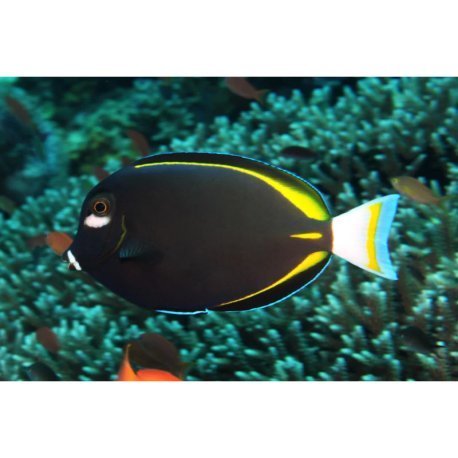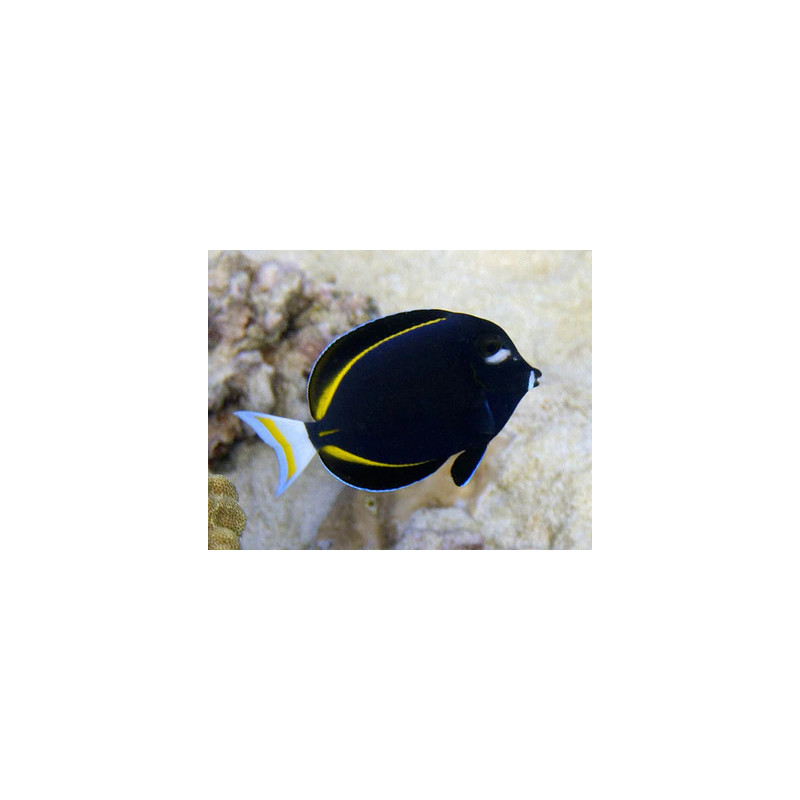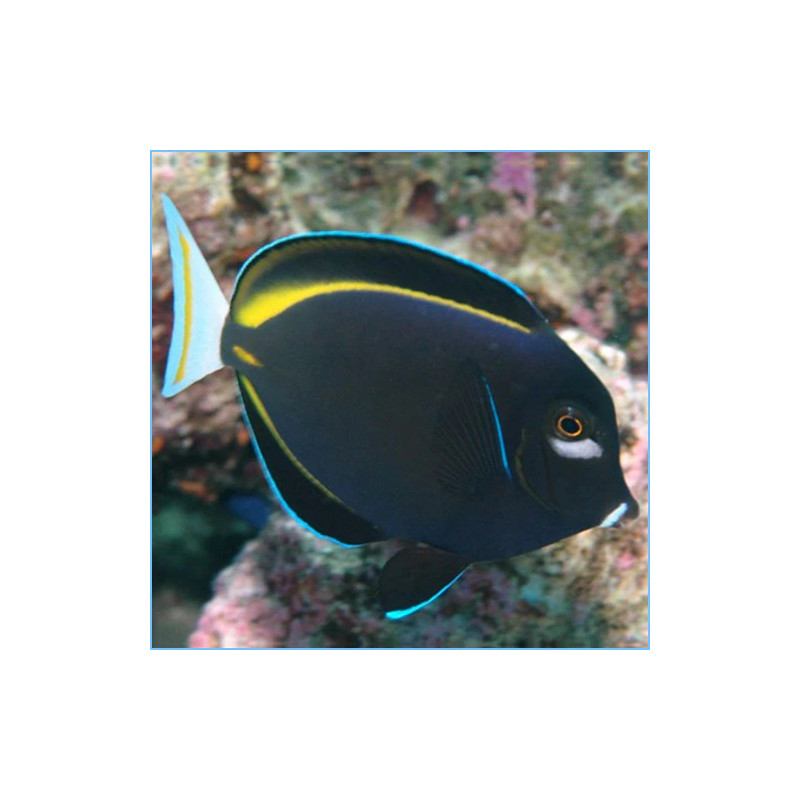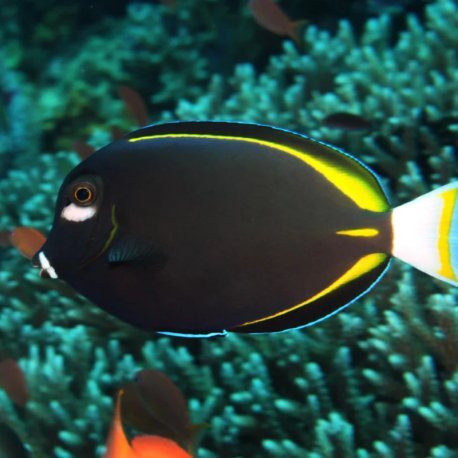More info
Common Name: Whitecheek Surgeonfish, Powder Brown Tang, Goldrim Surgeonfish
Scientific Name: Acanthurus nigricans
Order: Acanthuriformes — Family: Acanthuridae (Surgeonfishes)
Distribution: Indo-Pacific Ocean — From East Africa and the Maldives to Hawaii, the Marquesas Islands, and French Polynesia. Found in tropical coral reefs and outer reef slopes exposed to strong currents.
Lifespan: 10 to 15 years
Maximum Size (Adult): 21 cm
pH: 8.1 to 8.4 — Hardness: 8 to 12 dKH
Temperature: 24°C to 28°C
Minimum Tank Size: 350 to 400 liters
Reef Safe Compatibility: Yes — Generally considered reef safe, although it may display territorial behavior toward other tangs or surgeonfishes.
Behavior & Compatibility:
An active and territorial species, especially toward other surgeonfishes of the same genus or with a similar body shape. Can be housed in marine community aquariums with peaceful species of similar size. Requires plenty of open swimming space and rocky areas with algae for grazing. Not suitable for small or overcrowded tanks.
Diet:
Herbivorous. In the wild, it feeds primarily on filamentous algae and microalgae. In captivity, it should be provided with a diet rich in vegetable matter, including dried seaweed (nori), spirulina, and herbivore-formulated foods. May accept brine shrimp and mysis shrimp occasionally, but the diet must be plant-based.
Reproduction:
Oviparous. In the wild, they spawn in groups, releasing eggs into the water column. Breeding in aquariums is extremely rare due to space requirements and migratory reproductive behavior.
Sexual Dimorphism:
No obvious external differences between males and females. Both sexes display the characteristic white cheek marking and white-edged caudal fin.
Natural Habitat & Biotope:
Occurs on outer coral reef slopes exposed to moderate to strong currents, typically at depths of 2 to 15 meters. Spends most of its time grazing on algae over rocky substrates.
Etymology:
The genus name Acanthurus derives from the Greek akantha (spine) and oura (tail), referring to the sharp caudal spine. The species name nigricans means “blackened” in Latin, describing its predominantly dark coloration.



